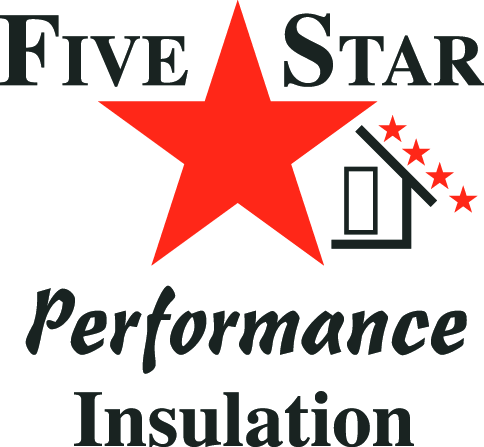 Insulation plays a crucial role in ensuring the comfort, energy efficiency, and overall functionality of buildings, and this applies not only to traditional brick-and-mortar structures but also to metal buildings. Metal buildings, known for their durability, cost-effectiveness, and versatility, are widely utilized in various industries such as agriculture, manufacturing, warehousing, and even residential construction. However, despite their numerous advantages, metal buildings can face unique challenges when it comes to temperature control and energy efficiency. In this blog post, we will explore the importance of insulating metal buildings, the benefits it offers, and why it should be a top priority for anyone considering or already utilizing a metal building.
Insulation plays a crucial role in ensuring the comfort, energy efficiency, and overall functionality of buildings, and this applies not only to traditional brick-and-mortar structures but also to metal buildings. Metal buildings, known for their durability, cost-effectiveness, and versatility, are widely utilized in various industries such as agriculture, manufacturing, warehousing, and even residential construction. However, despite their numerous advantages, metal buildings can face unique challenges when it comes to temperature control and energy efficiency. In this blog post, we will explore the importance of insulating metal buildings, the benefits it offers, and why it should be a top priority for anyone considering or already utilizing a metal building.
Enhanced Energy Efficiency
One of the primary reasons why insulating metal buildings is essential is to enhance energy efficiency. Uninsulated metal structures can be subject to significant heat gain during hot summer months and rapid heat loss during frigid winters. This can place a heavy burden on heating, ventilation, and air conditioning (HVAC) systems, leading to inefficient energy consumption and skyrocketing utility bills. By installing proper insulation, metal building owners can significantly reduce heat transfer through walls, ceilings, and roofs, creating a more stable indoor environment and reducing the workload on HVAC systems. As a result, insulation helps achieve substantial energy savings, reduced reliance on heating and cooling systems, and an improved carbon footprint.
Control Temperature Fluctuations
Metal buildings, without proper insulation, often suffer from extreme temperature fluctuations. During the peak summer season, uncontrolled heat gain can create a highly uncomfortable working or living environment, harming occupants’ productivity and overall well-being. In contrast, during winter, the lack of insulation allows frigid air to permeate the building, leading to chilling conditions that can impact both humans and equipment. Installing insulation can help maintain stable indoor temperatures, offering valuable comfort to employees, inhabitants, or valuable assets such as machinery and inventory. By mitigating temperature fluctuations, insulation can contribute to a more pleasant and productive atmosphere within metal buildings.
Condensation and Moisture Control
Insulating metal buildings is crucial not only for temperature control but also for the prevention of condensation and moisture-related issues. Metal has a high thermal conductivity, meaning it can easily transfer heat or cold. This quality, coupled with temperature differences inside and outside the building, can lead to the formation of condensation on metal surfaces. Condensation not only damages the structural integrity of the building but also creates an ideal environment for mold and mildew growth. Insulation acts as a thermal barrier, preventing moisture-laden air from coming into contact with metal surfaces and thus reducing the risk of condensation. Moreover, insulation can help regulate humidity levels within the building, protecting valuable equipment, documents, and ensuring the health and well-being of occupants.
Noise Reduction
Metal buildings are often found in noisy environments such as busy industrial areas, airports, or construction sites. The absence of insulation can result in unwanted noise permeating the building, which can be highly distracting and disruptive to users. Insulation acts as an effective sound barrier, reducing noise transmission through the metal structure. This can create a more peaceful and productive setting by suppressing exterior noise and maintaining privacy within the building.
Structural Protection
While metal buildings are known for their durability, insulation plays a crucial role in ensuring their long-term integrity. Extreme temperature fluctuations can cause metal structures to expand and contract, potentially leading to structural damages and weakening the building over time. Insulation helps regulate temperature, reducing the strain on the metal components, thus extending the lifespan of the building and minimizing maintenance costs.
Summary
Insulating metal buildings is not just an option but a necessity for anyone seeking to optimize energy efficiency, control temperature fluctuations, limit condensation and moisture issues, reduce noise, and protect the structural integrity of their building. The benefits of insulation extend beyond financial savings and comfort; they contribute to creating sustainable and reliable metal structures that can withstand the test of time. Therefore, individuals considering or already utilizing metal buildings should prioritize insulation to maximize the value and potential of their investment.
Need Insulation Contractors in Sacramento, CA?
5 Star Performance Insulation, Inc. is where you want to go for all your insulation needs. We have been in business for 25 years, with 30 years experience in the industry in 4 states. We are located in Sacramento, CA, but service the Central Valley, the Sierras, and the Greater Sacramento area. Providing a high-performance insulation system is our top priority, and we are sure you will be satisfied with what we have to offer. Contact us today to learn more about what we can do for you!
